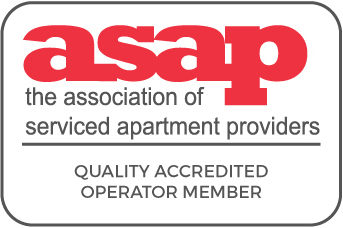By Margot Andersen
For those who have lived abroad, or are embarking on resettling in a new country, you will know that sometimes it can feel just plain tough. Whilst the experience of international moves are exciting, most of us are caught by surprise at just how many ‘little’ things can actually unnerve us or catch us unaware. The idea of navigating any form of lag time outside of jetlag just didn’t seem to occur to us and yet it is essential to build this time to settle in a new place as part of an international transition.
As the demand for global experience continues to grow, the prospect of living and working abroad continues to remain a valuable opportunity for businesses and individuals alike. However, its crucial to plan ahead, and consider the different facets of life, both personally and professionally that will change when settling into a new home city.
Just as the physical journey home invariably requires us to cross often multiple time zones, so too does the repatriation journey. Successful international transitions require us to give careful consideration to what some of these other zones are.
The six zones of international transitions
Physical: Regarded as the baseline of the move, most of us are well equipped to manage this ‘zone’ effectively – especially if we are moving with an organisation. With the logistics of a move often the easiest to manage because it is the most obvious – shipping of belongings, booking of flights and the organisation of interim accommodation – it is something that most of us are well equipped to manage with a few calls and emails.
Financial: Given that most people don’t move in tandem with the financial or tax year, seeking financial guidance is critical if we are to remove the stress of kick starting our lives abroad. Foreign bank accounts; managing offshore investments; navigating compliance formalities and simply shifting finances all require timely advice especially with regulations all too easily changing whilst we are offshore.
Business: With significant business, industry and market changes there is often a need to quickly integrate yourself into a new market if you are going to reduce the lag time in this zone. Mentors, networking groups and credible industry news sources are essential in helping you understand regulatory, business and social / cultural changes that impact the way business is done.
Career: For expatriates, it’s often a job opportunity that prompts an international move. Whilst robust career planning is imperative at any stage of your career, the same applies when settling in a new home and city. Continue to invest time in mapping your career trajectory, which also includes considering how you will also apply your experience upon your return home, if you are temporarily settling abroad.
Social: In many cities around the world, there is often an opportunity to enjoy the community and the connection of a tight knit expat network whilst offshore. For some, however, moving abroad can be an intensely isolating experience that can significantly impact the level of fulfillment and engagement in both our personal communities and workplaces. It’s important to establish your new networks and friendships (and often with others who have lived an international life) where the greatest degree of support can be found.
Emotional: Whilst stress and anxiety are a well-known side effect of any move, it is often most under-estimated when it comes to international moves. When the so-called familiar no longer feels that way the emotional impact can be overwhelming. Understanding some of the key triggers and the subsequent support offerings available should also be planned for.
These experiences are life defining across all six zones of international transitions. Knowing how to navigate these zones will help all expats leverage the rich and rewarding experiences of this journey, to enjoy the true benefits of living an international life in the long term.
If you have lived abroad and have made the move ‘home’, join Insync Network Group and its global community of expats at their upcoming cocktail evenings in Sydney on 29 May 2019 or in Melbourne on 4 June 2019. Designed to also support those who are currently working away from home and about to embark on their own return, it is an opportunity to share experiences and glean some advice from those who have walked in your shoes before.
Margot Andersen is the Owner and Director of talentinsight Australia, a career management, leadership and HR consultancy; and Founder of Insync Network Group, a group that supports expatriates and repatriates both personally and professionally as they navigate the move ‘home’.




